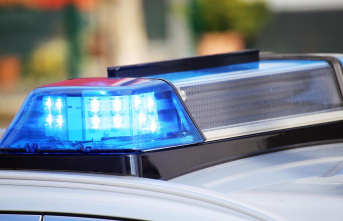DETROIT, -- U.S. safety investigators are seeking to find out why Tesla did not file recall documents when it upgraded Autopilot software to better identify emergency vehicles parked. This escalates a simmering conflict between Tesla and regulators.
The National Highway Traffic Safety Administration sent a Tuesday letter to Tesla advising that vehicles must be recalled if there is an update on the internet regarding a safety problem.
"Any manufacturer issuing an update over-the-air that reduces a defect that presents an unreasonable risk to motor vehicles safety is required to timely submit an accompanying recall notice (NHTSA)," the agency wrote to Eddie Gates.
Tesla was also required by the agency to share information about its "Full Self-Driving", software, which is being tested on public roads and with some owners.
This latest incident is yet another sign that tensions are growing between Tesla and the agency responsible for vehicle safety and partially-automated driving systems.
After receiving numerous reports about vehicles colliding with emergency vehicles, many of which had flashing lights, the agency launched an investigation into Tesla's Autopilot. This software allows cars to stay in their lane, and keep them safe from other vehicles.
Early Wednesday, Tesla representatives were reached by messages.
After a series collisions with emergency vehicles parked nearby, the NHTSA initiated a formal investigation into Autopilot. This investigation includes 765,000 vehicles. It covers almost all Teslas sold in the U.S. since 2014. One person was killed and 17 were injured in the 12 crashes.
The agency claims that Tesla performed an over-the Internet software update in September to improve detection of emergency vehicles lights in low light conditions. According to the agency, Tesla is aware of federal law that requires automakers recall vehicles if they discover safety problems.
The agency requested information about Tesla's Emergency Light Detection Update that was sent out to certain vehicles with the "said purpose of detecting flashing emergency lights in low-light conditions and responding to said detection by driver alerts and changes in the vehicle speed while Autopilot remains engaged."
The letter requests a list of the events that motivated the software upgrade, along with the vehicles to which it was sent and whether the measures are applicable to Tesla's entire fleet.
It also asked the Palo Alto company from California if it plans to file recall documents. The agency requests that Tesla provide the technical and/or legal reasons for declining to file recall documents.
Philip Koopman is a Carnegie Mellon University professor of electrical engineering and computer engineering. He stated that NHTSA wants Tesla to recall its vehicles. Koopman, who studies automated vehicle safety, said that NHTSA is giving Tesla the chance to voice their opinion before taking down the hammer.
Automakers must notify NHTSA within five days of discovering a safety problem. They are also required to recall vehicles. NHTSA monitors recalls to ensure they cover all affected cars.
Public recalls allow owners to ensure that repairs are made and inform potential buyers of safety issues.
All automakers were made aware by NHTSA that they must report to the agency any software updates they make via the internet. This is to ensure they are correcting safety issues. This is another technology the agency must deal with, as many automakers are following Tesla's lead with internet software capabilities.
Koopman stated that every company is exposed every time they perform an over-the air update. NHTSA could come back several weeks later to say, "Wait a minute, that's a stealth recall."
The agency demanded that Tesla comply by November 1st or face civil penalties of more than $114,000,000 and court action.
NHTSA issued a separate order to Tesla stating that Tesla may be trying to block the agency's access safety information. It required Tesla drivers who test "Full Self-Driving", software, to sign non-disclosure agreement.
Tesla must describe its non-disclosure agreements. It should also state whether Tesla requires Autopilot owners to agree to any terms that prevent or discourage them from discussing Autopilot with anyone other than Tesla.
A Tesla officer must respond under oath. The order states that Tesla could be referred for prosecution if it fails to comply. The order also threatens additional fines in excess of $114 million.
Tesla stated that vehicles with Autopilot or Full Self-Driving cannot drive themselves. It warns drivers to be prepared to intervene at any time.
Tesla shares rose slightly Wednesday morning trading
It was not clear how Tesla and Elon Musk would respond to the demands of NHTSA. Musk and the company have had a long history of fighting with federal regulators.
NHTSA requested Tesla to recall 135,000 vehicles in January because the touch screens of some vehicles could become dark. They were considered a safety problem because backup cameras and windshield defroster controls can be disabled.
NHTSA held a public hearing on Tesla's behalf and took Tesla to court. A month later, the company accepted the recall. Tesla claimed it would replace the computer processors in the screens even though there was no safety risk.
Musk was involved in a dispute with the Securities and Exchange Commission regarding a tweet he claimed he had funding to take Tesla private. However, that funding wasn't secured. To settle claims that he misled investors, he and the company agreed each to pay $20 millions. Musk called the SEC "shortseller enrichment committee", a distortion of the acronym. Short sellers wager that the stock price will fall.
President Joe Biden has a more strict regulatory approach to automated vehicle safety than the previous administrations, as evidenced by NHTSA's new requirements. The agency was reluctant to regulate this new technology out of fear that it would hinder the adoption of potentially life-saving technologies.
Date Of Update: 16 October 2021, 15:37










